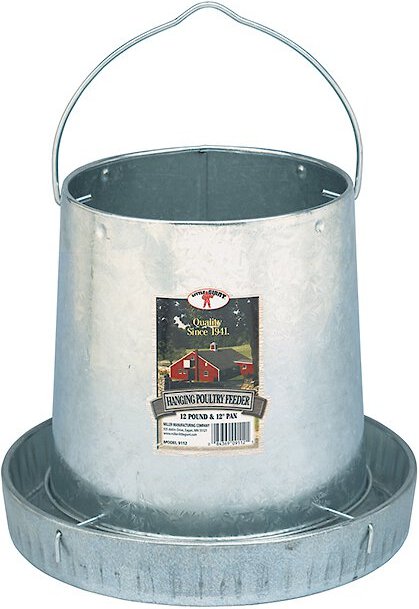There are many reasons why you might want to start raising backyard chickens. The price of eggs and chicken meat in general might have increased too much for you to accept. Maybe it sounds like fun. You might want to reconnect with your rural and pastoral roots. Perhaps you simply want to be more self-sufficient. There is no wrong reason for raising your own backyard chickens. It is a rewarding, fun, and healthy work.
Before you begin, however, there is a lot of planning you must do, equipment you must buy or construct, and more. This comes after learning how to care for and raise chickens, of course. The good news is that we made a complete list of all the physical equipment and materials you’re going to need. For each item, we have included a recommendation that is perfect for the beginning backyard farmer. Whether for their simplicity or budget-friendliness, these items will get you started on the right foot. The specific brands you choose to purchase are up to you, but this is enough to get you started on your chicken-keeping journey!
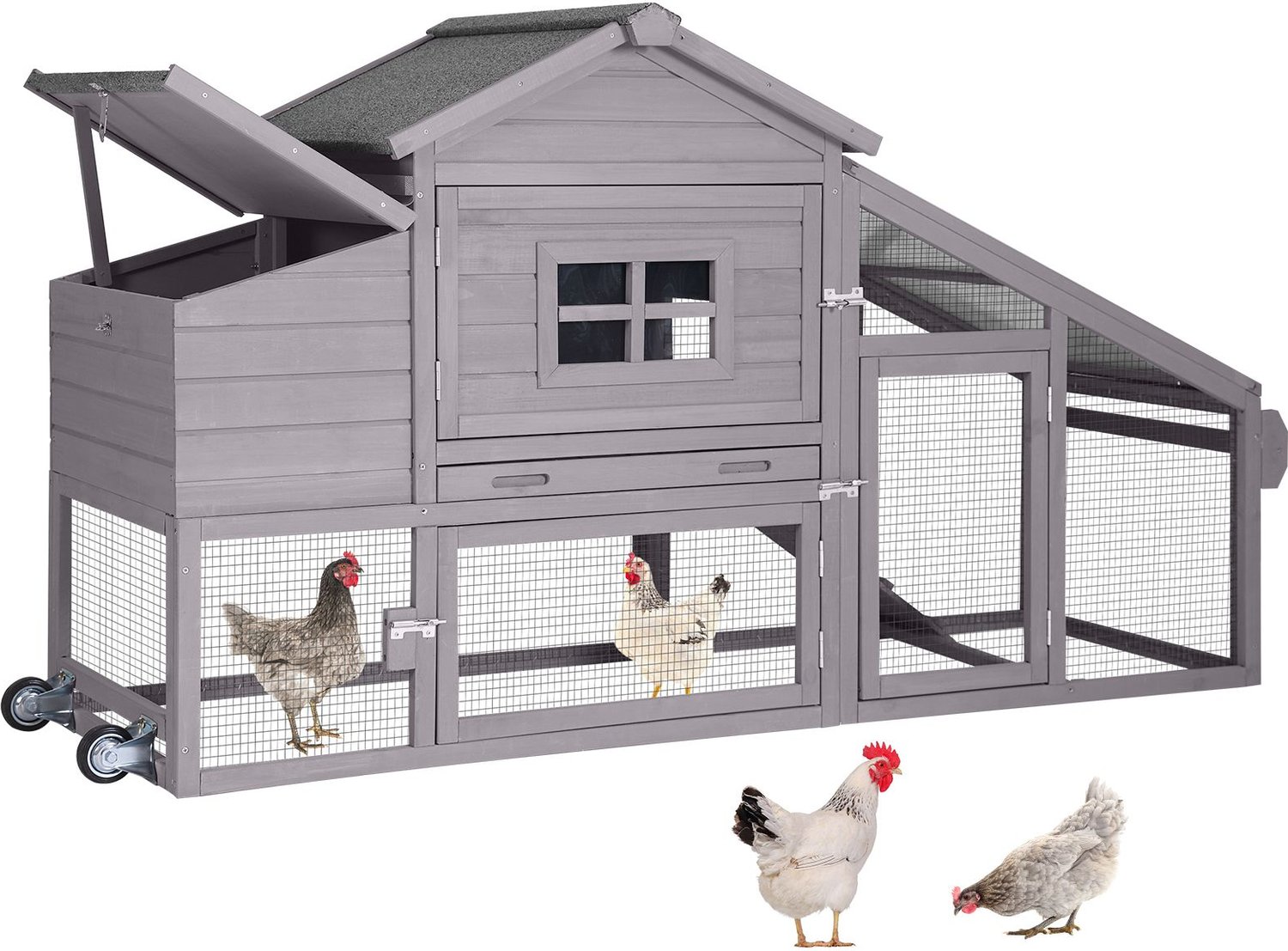 Check Chewy Check Amazon
Check Chewy Check AmazonPerfect chicken coop size: 69”(L) x 26”(W) x 39.4”(H) provide LARGER 9.9ft² ground activity space for 2-3 chickens, bunny, guinea pig, and other poultry, no weight limit.
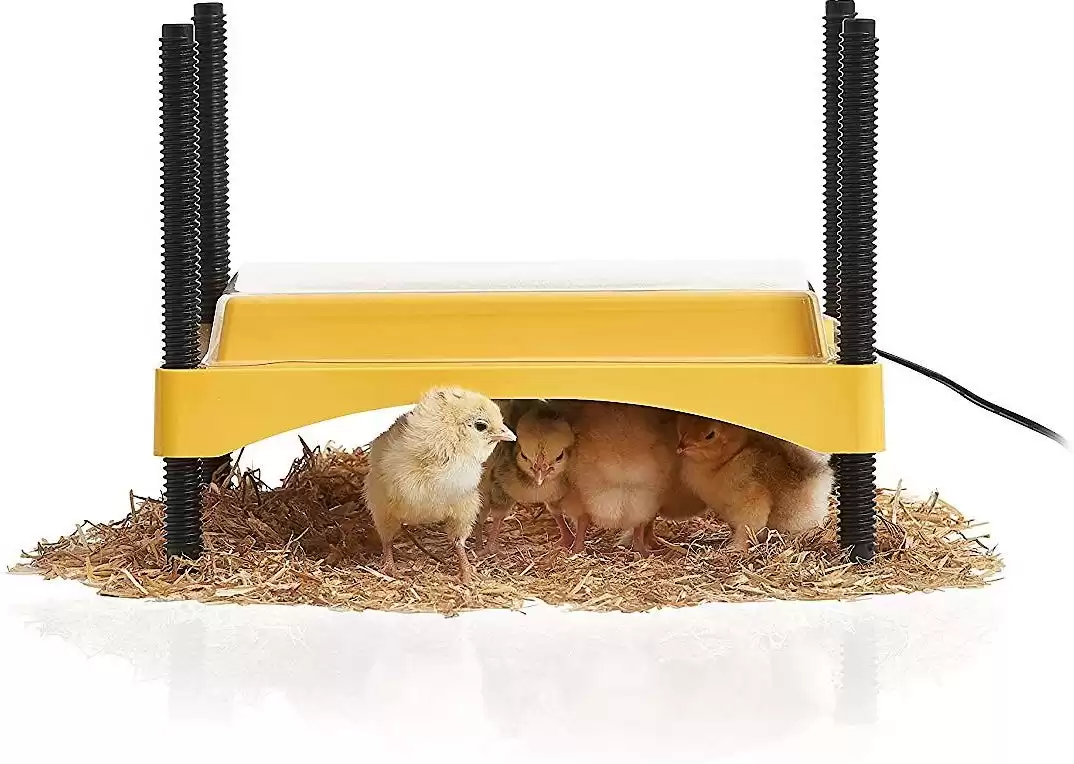 Check Chewy Check Amazon
Check Chewy Check Amazon- Warms up to 20 newly hatched chicks or ducklings
- Features a safe, 12-volt radiant-heat underside for uniform temperature and minimal power consumption
- Indicator light lets you know the unit is working
- Durable and easy to clean
- Features a natural day/night cycle to promote weight gain and feather growth
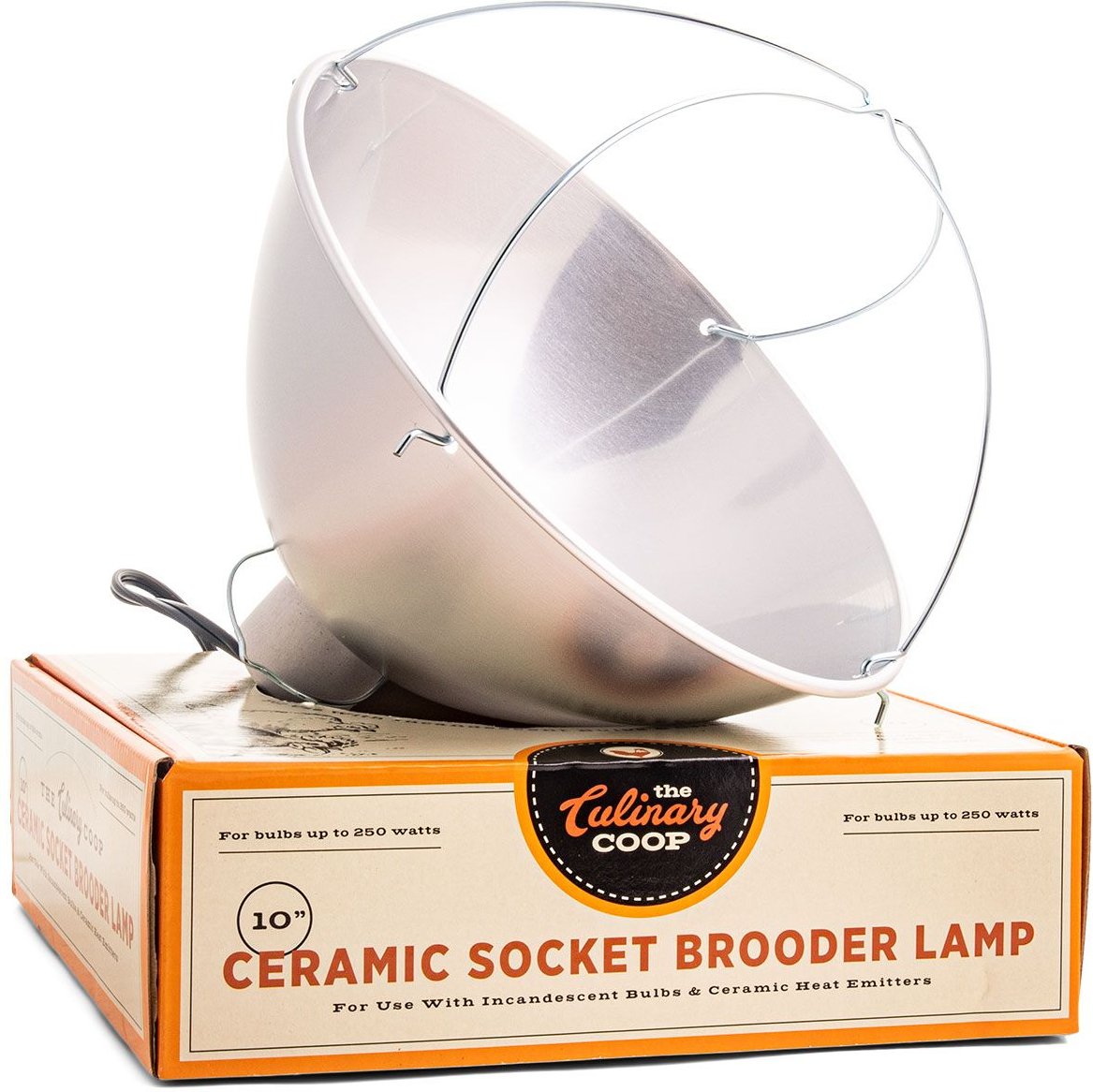 Check Chewy Check Amazon
Check Chewy Check Amazon- Give the Heat Your Chickens and Livestock Need
- 10" Deluxe Dome Lamp is Made of Heavy Gauged Aluminum and Includes a Bulb Protector and Hangar
- Safe and Simple Heat Solution
- Ceramic Socket Can be Used with Incandescent Bulbs and Ceramic Heat Emitters
- Rated up to 250 watts
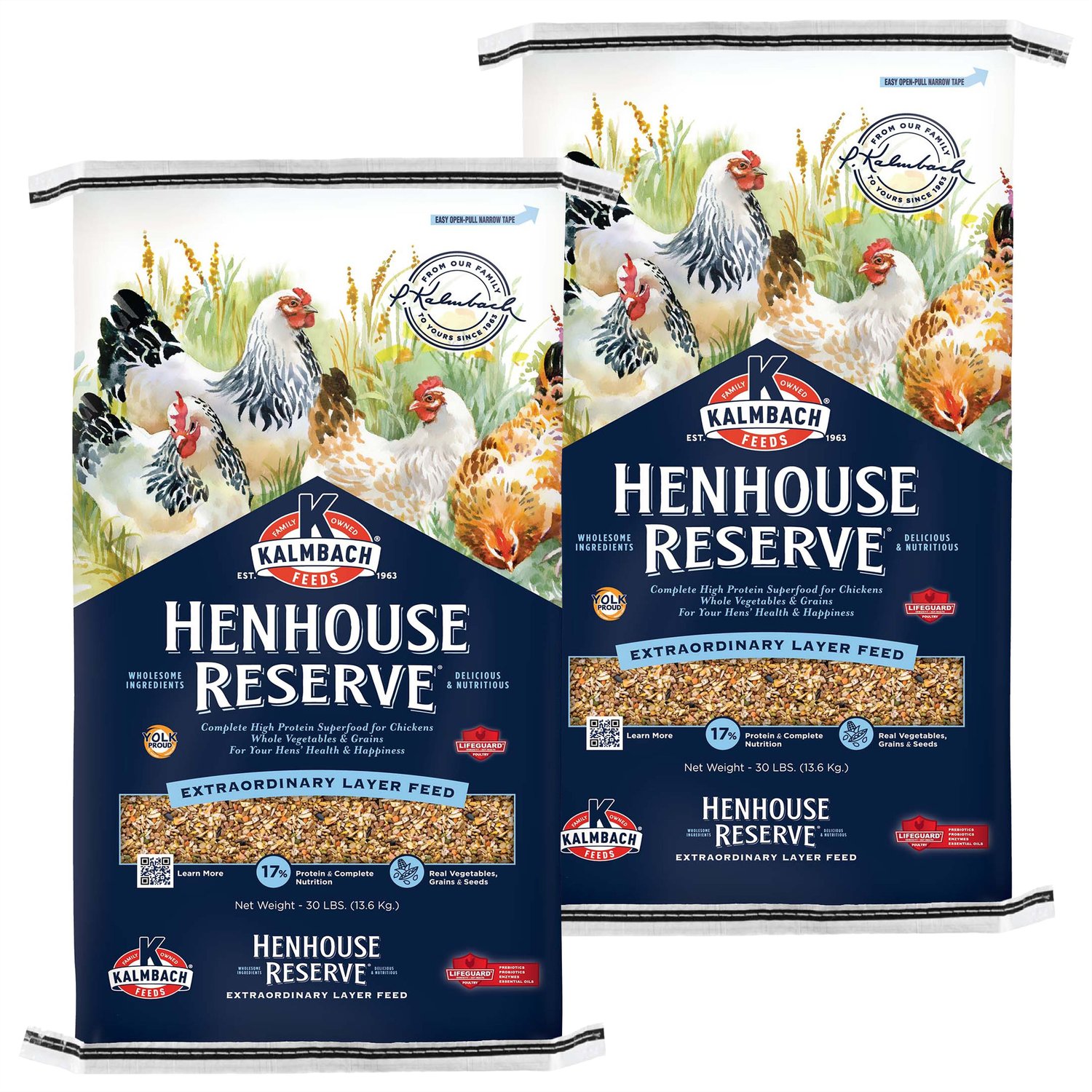 Check Chewy Check Amazon
Check Chewy Check AmazonBrand: Kalmbach Feeds
Flavor: Pork
Age Range (Description): All Life Stages
Item Form: Grain
Specific Uses For Product: Feeding chickens
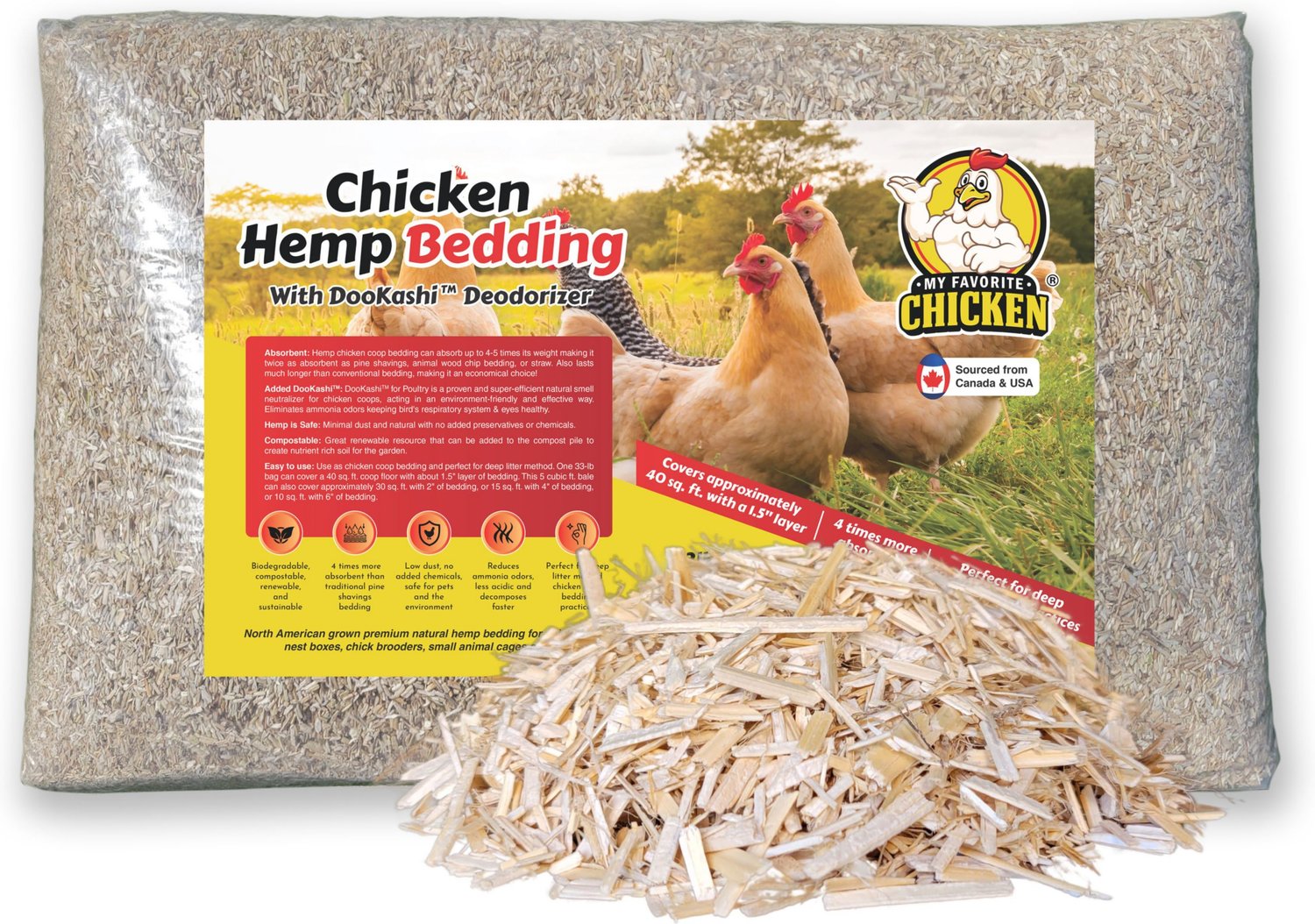 Check Chewy Check Amazon
Check Chewy Check AmazonIf you’re in search of an alternative to pine shavings for chickens that break down easily, our hemp chicken bedding is the answer; This bird bedding is crafted from hemp hurd fiber cuttings, meaning that it decomposes naturally; For people that care about the planet, My Favorite Chicken’s hemp bedding is the smarter choice .
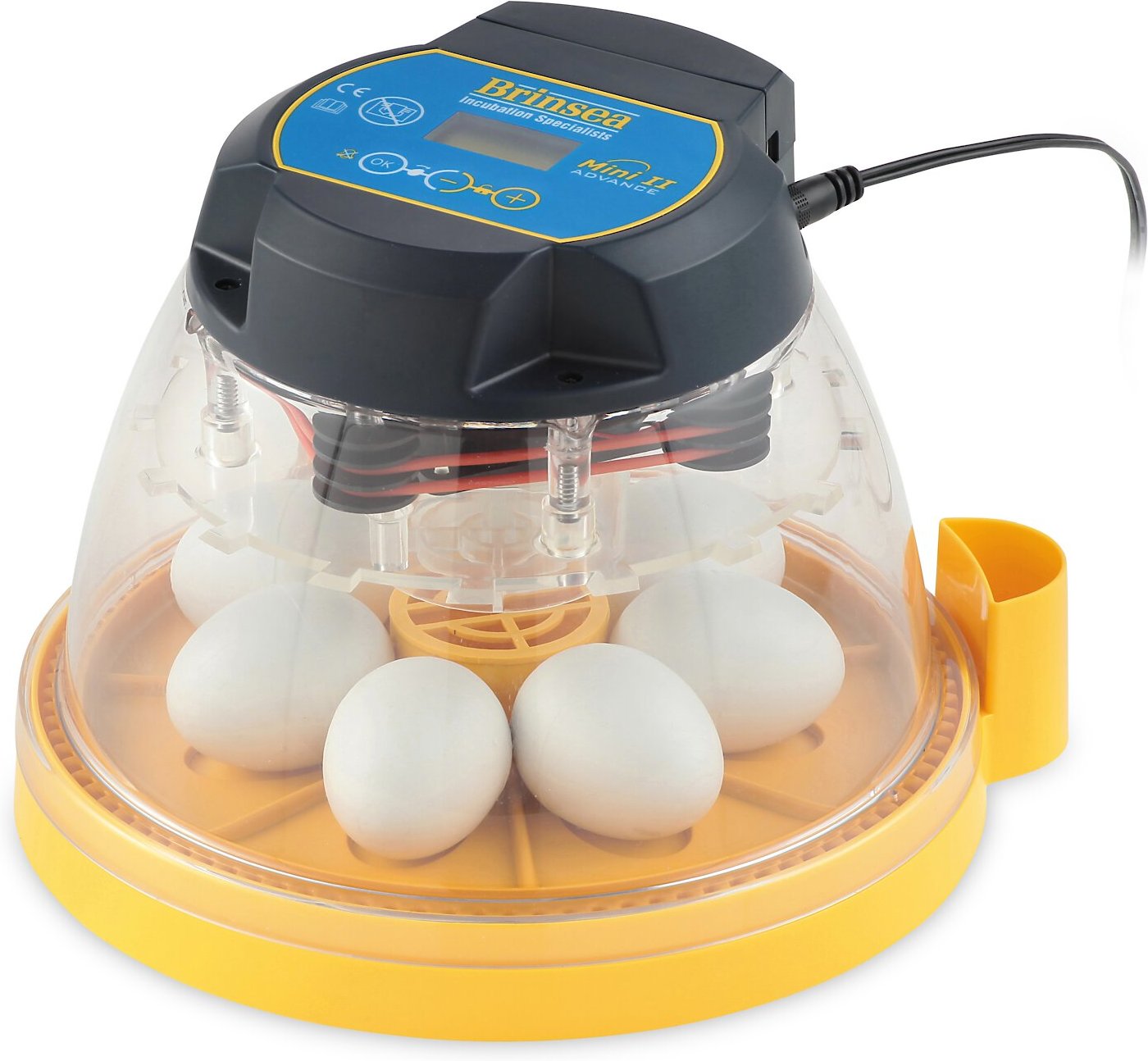 Check Chewy Check Amazon
Check Chewy Check Amazon- Excellent visibility
- Fully digital menu driven controls
- Programmable automatic egg turning
- Count down to hatch day with auto stop
- Robust hygienic ABS plastics construction for easy cleaning
- Age range description: Baby
- 3-year warranty subject to registration
- Supplied with US plug power supply
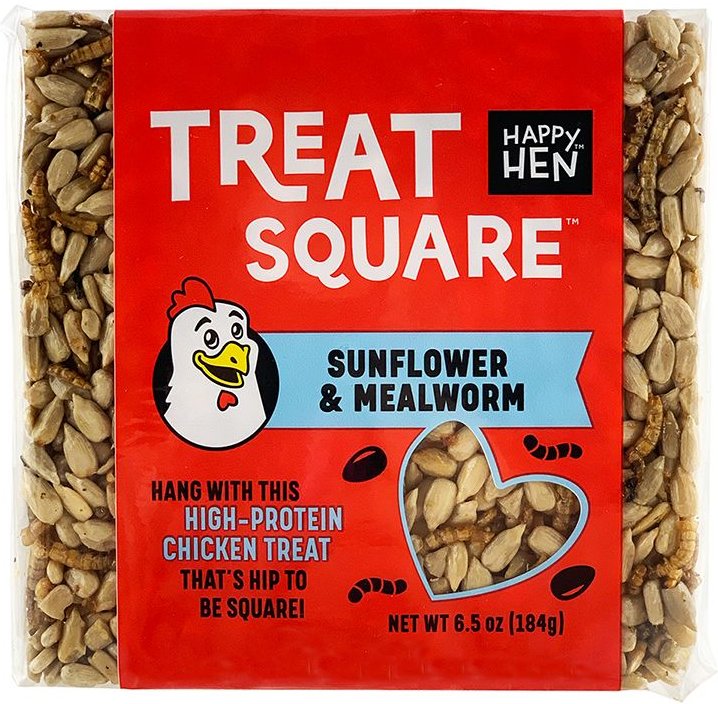 Check Chewy Check Amazon
Check Chewy Check Amazon- High in protein
- Reduces boredom and pecking
- All natural ingredients
- Country Of Origin: United States
Item #1: Chick Brooder
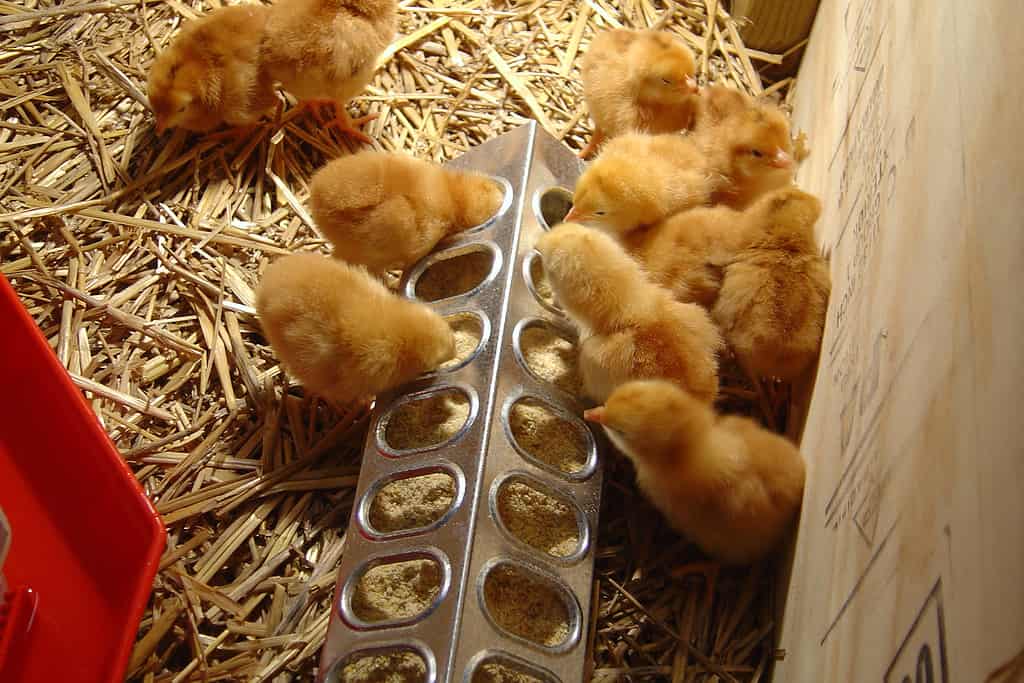
A group of baby chicks eating chicken feed in a brooder on a farm.
©iStock.com/Jennifer Chamblee
When you first begin your backyard chicken escapade, you will most likely start with a few chicks. Depending on how young these chicks are, you will need a brooder. You will definitely need one if you plan on continuing or expanding your flock.
A brooder is used for newborn chicks to have a warm, safe place to recover from the hatching process and gain the strength to walk and eat on their own. With a brooder, you can hatch and raise chicks all year round without worrying about the weather.
Preferably you will want a permanent brooder with bedding of some kind (like sawdust), a water feeder, a food dispenser, and a heat lamp. But you can make your own temporary brooder pretty cheaply if you only plan on using it once or twice.
- Warms up to 20 newly hatched chicks or ducklings
- Features a safe, 12-volt radiant-heat underside for uniform temperature and minimal power consumption
- Indicator light lets you know the unit is working
- Durable and easy to clean
- Features a natural day/night cycle to promote weight gain and feather growth
Item #2: Heat Lamp or Warmer
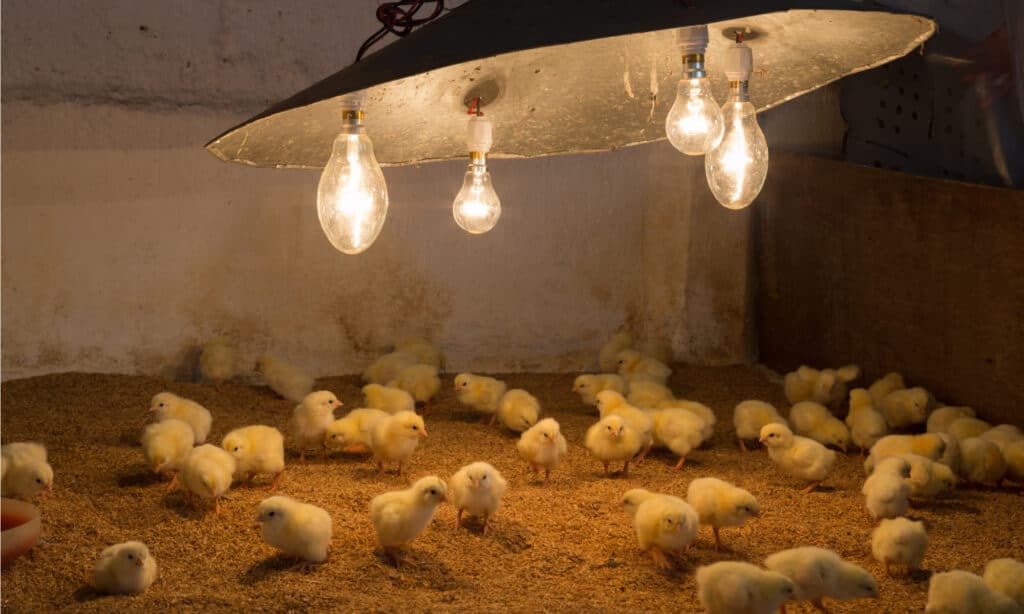
One-day-old chickens under a heat lamp.
©Oliver Foerstner/Shutterstock.com
You will need a warmer, or some kind of heat lamp, for your brooder (if it doesn’t come with one) and for your coop if the temperature drops too low in the winter or at night. If you have a well-built coop, it should already be insulated against drastic temperature fluctuations. (Four pieces of plywood nailed together with straw on the floor is not an acceptable coop).
- Give the Heat Your Chickens and Livestock Need
- 10" Deluxe Dome Lamp is Made of Heavy Gauged Aluminum and Includes a Bulb Protector and Hangar
- Safe and Simple Heat Solution
- Ceramic Socket Can be Used with Incandescent Bulbs and Ceramic Heat Emitters
- Rated up to 250 watts
Item #3: Chicken Feed
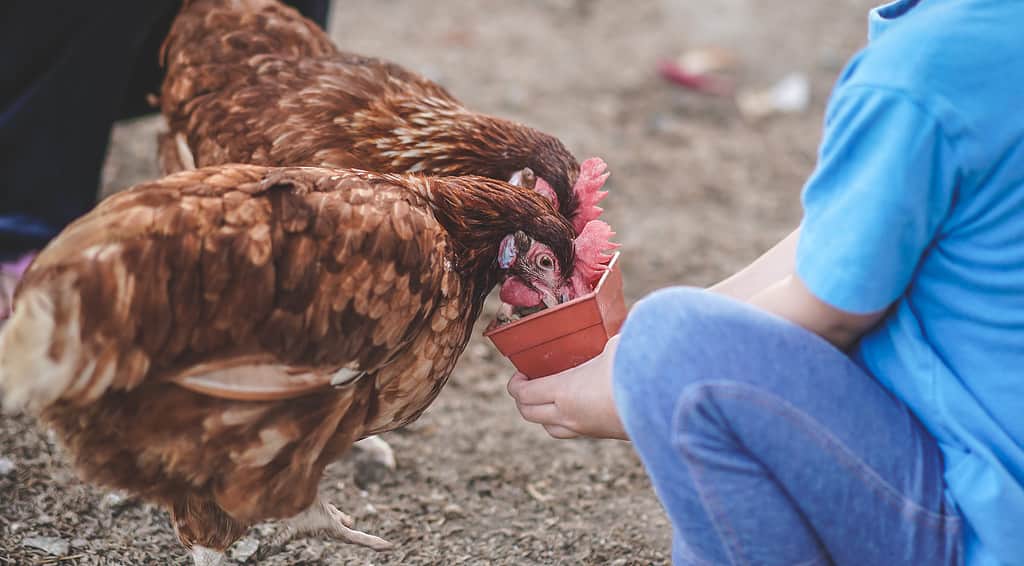
With time, your chickens will come to look at you as their caregiver.
©RB Stocker/iStock via Getty Images
If you don’t provide your chickens with a healthy diet, then you can’t possibly expect them to grow or produce eggs properly. Don’t expect your chickens to find all the nutrients and vitamins they need naturally in your backyard. You should do your research on what type of chickens you plan on raising and what feed they prefer or need. You should always keep extra on hand just in case of an accident or emergency.
Brand: Kalmbach Feeds
Flavor: Pork
Age Range (Description): All Life Stages
Item Form: Grain
Specific Uses For Product: Feeding chickens
Item #4 Food Container
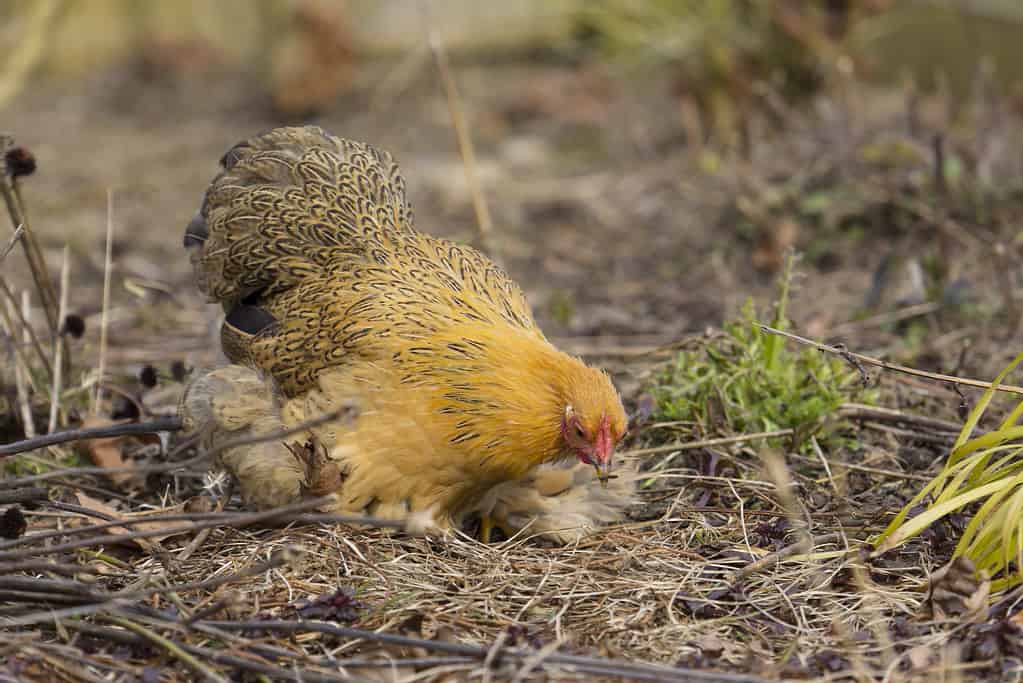
Chickens will naturally hunt for food, but don’t force them to do this for their primary nutrients.
©LeeGillion/iStock via Getty Images
A feeder is a preferable method to feeding your chickens than throwing the feed on the ground. Throwing feed in the coop or in the run will invite pests and promote fungus and parasite growth. Feeders or food containers will minimize wastage and help you keep a clean coop.
Item #5 Coop Bedding
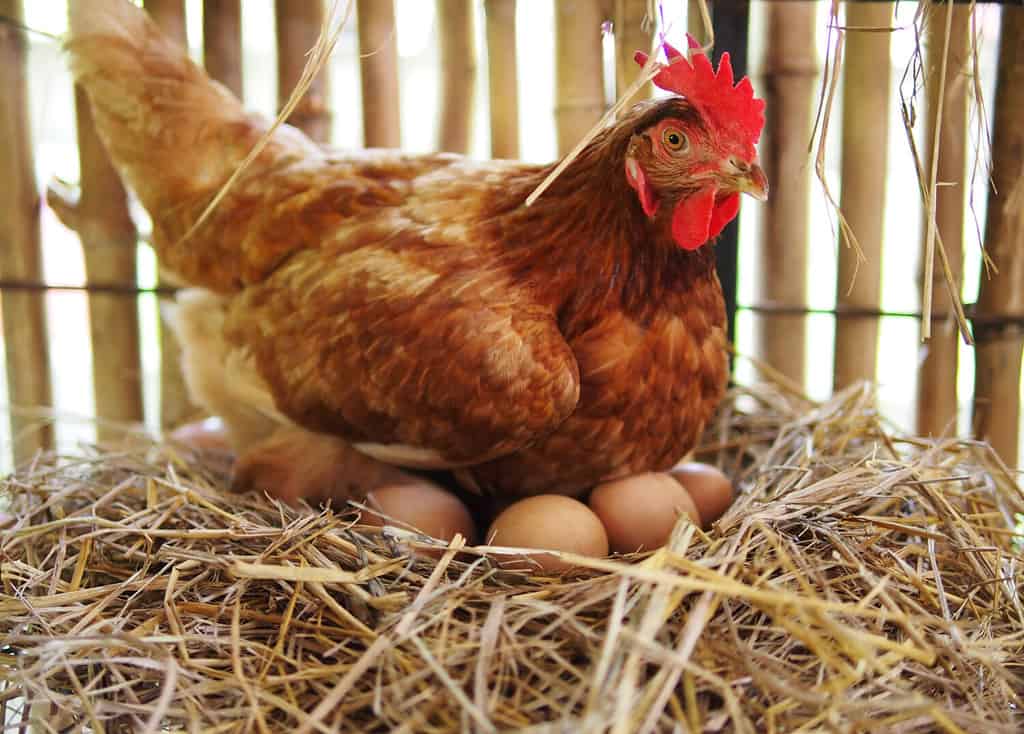
Straw like this makes a perfect bedding material.
©PhotoSongserm/Shutterstock.com
Clean bedding, changed regularly, maintains cleanliness, and odors. It helps chickens keep their feet clean and absorbs droppings. The bedding is placed on the floor of your coop and in the nesting boxes. You can use straw, wood chippings, sawdust, or hay.
Whatever you choose to use, make sure it is easily replaceable, clean, and that your chickens actually like it. You might be surprised that some chickens have a preference for their surroundings. If it looks like your chickens have taken issue with any part of your coop, bedding, or enclosure, it might be time for an adjustment.
If you’re in search of an alternative to pine shavings for chickens that break down easily, our hemp chicken bedding is the answer; This bird bedding is crafted from hemp hurd fiber cuttings, meaning that it decomposes naturally; For people that care about the planet, My Favorite Chicken’s hemp bedding is the smarter choice .
Item #6: Egg Incubator
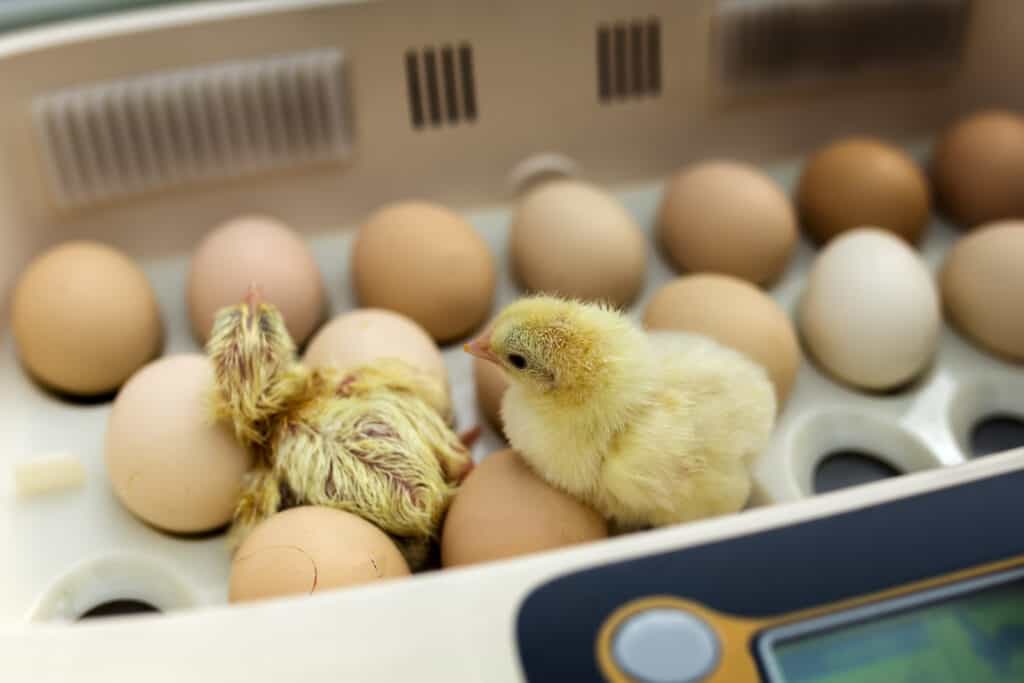
Egg incubators maintain ideal conditions and temperatures for hatching eggs.
©Ivan Kurmyshov/Shutterstock.com
If you plan on continuing your flock through successive generations, an incubator is a must. You will use an incubator to keep fertilized eggs warm and safe until they hatch. Keep the newly hatched chicks in the incubator for a few days until they are able to walk and eat on their own. At this point, you should relocate them to your brooder.
- Excellent visibility
- Fully digital menu driven controls
- Programmable automatic egg turning
- Count down to hatch day with auto stop
- Robust hygienic ABS plastics construction for easy cleaning
- Age range description: Baby
- 3-year warranty subject to registration
- Supplied with US plug power supply
Item #7: Chicken Coop
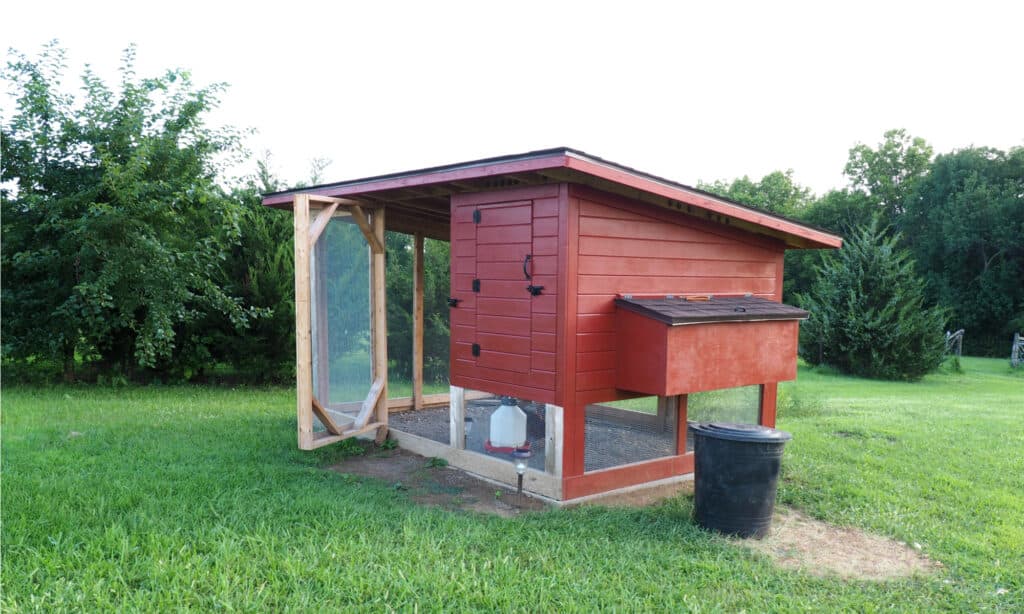
Red chicken coop made of wood and metal screen
©Cynthia Farmer/Shutterstock.com
The centerpiece of your backyard chicken empire. You should take plenty of time planning your coop. This should include location, materials, size, and features. Here are important things to remember when building or purchasing your chicken coop.
Make sure your coop is well-ventilated. Good ventilation helps regulate the temperature and odor of your coop. It allows harmful fumes and airborne bacteria to escape instead of festering with your chickens. Keep your coop well-ventilated but avoid allowing drafts to blow through your coop. Place vents, windows, and doors in places that allow air in and out, but protect your chickens from strong breezes and winds.
Consider your insulation for your coop. Your insulation needs will vary depending on where you live, but every coop should include some amount of insulation to protect from both high and low temperatures. Excessive heat or cold will stress your chickens and even kill them.
Include roosting bars or perches for your chickens. Hens prefer to roost off the ground away from the dirt and predators that would seek to eat their eggs. Install your roosting bars high and include enough room for each hen to comfortably rest and lay eggs. A cramped coop is a good way to ensure that your chickens fight and hurt each other over preferred roosting spots.
Perfect chicken coop size: 69”(L) x 26”(W) x 39.4”(H) provide LARGER 9.9ft² ground activity space for 2-3 chickens, bunny, guinea pig, and other poultry, no weight limit.
Item #8: Fence or Enclosure
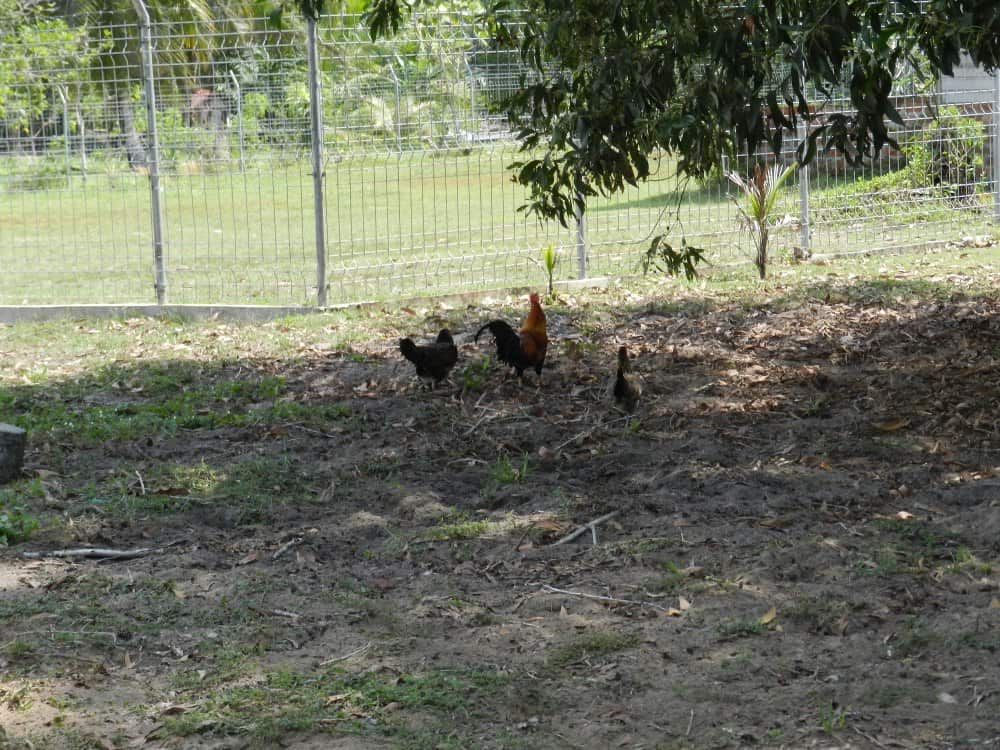
This is what a perfect chicken run looks like.
©Millie Bond – Copyright A-Z Animals
You need space around your coop for your chickens to play, exercise, and enjoy the outdoor air. This area is called a chicken run. Surround your run with a fence or chicken wire to keep your chickens inside and protect them from would-be predators. If there is any risk at all of dogs, coyotes, cats, or other animals entering your chicken run, then you should install a roof as well.
Healthy chickens need air, space, and an interesting environment, but above all they need to be safe. Chickens that are overly stressed will lose feathers, lose weight, and generally not support a happy, healthy chicken population. If you have tested your chickens for disease and they are healthy, then you should check your enclosure for hidden dangers or nearby stressors. Remove them if possible. Move your chickens to another area of your yard if necessary.
Item #9: Toys and Treats
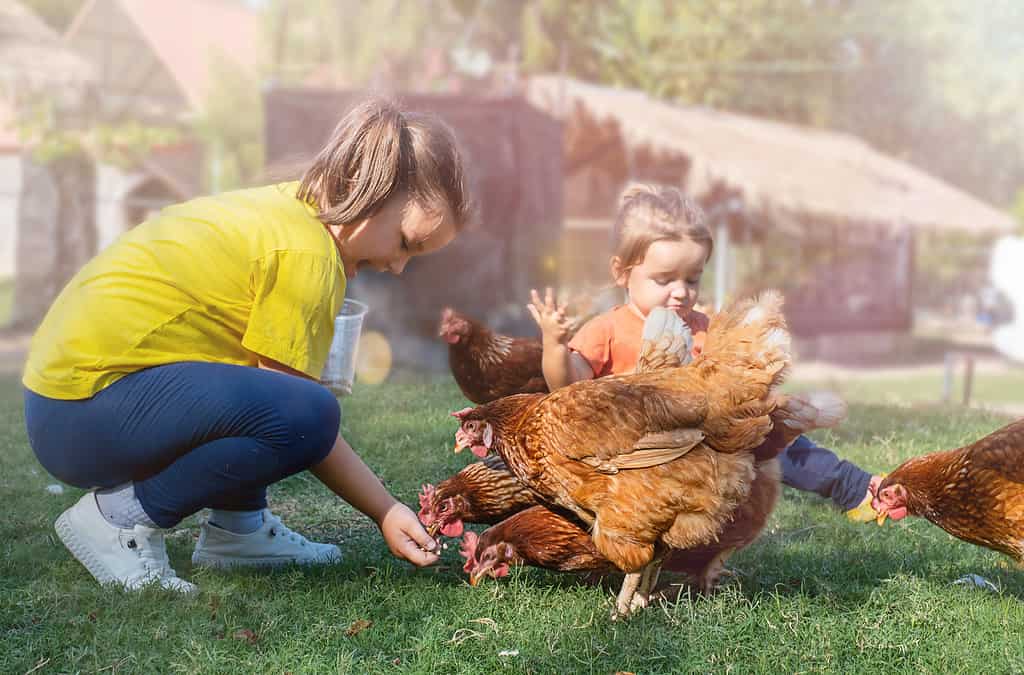
Children make a perfect distraction from the daily monotony of being a chicken.
©Valeriia Kuznetsova/iStock via Getty Images
Believe it or not, chickens can get bored. If you leave your chickens in the same coop with the same patch of dirt or grass for too long, you might notice they become a little less excited each day, or lose weight from stress. Introducing toys and treats is a good way to keep them interested during the day. Pre-made treats like seed balls are a great way to give them something tasty to eat while also being fun to peck at.
Chickens enjoy certain plants and chasing insects. Buy some bugs that are part of your chickens’ natural diet and release them in the run or coop from time to time to give your flock something to hunt.
- High in protein
- Reduces boredom and pecking
- All natural ingredients
- Country Of Origin: United States
That’s it! With a good spot, good planning, and this equipment, you are well on your way to raising your very own happy, healthy, and productive chicken flock! It is a daily responsibility, especially as your flock grows and the seasons change. However, collecting and preparing your very own eggs and enjoying the adulation of your chickens is a feeling unlike any other. Good luck!
The photo featured at the top of this post is © Courtney Jenckes/Shutterstock.com
Thank you for reading! Have some feedback for us? Contact the AZ Animals editorial team.




